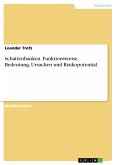Scientific Essay from the year 2014 in the subject Economics - Macro-economics, general, grade: 1,5, University of Innsbruck (Banking and Finance), language: English, abstract: Repos are not only one of the financial instruments with crucial importance for funding. They primarily played a significant role to the recent financial crisis as well. Hence, the question is, whether Basel III and the Dodd-Frank Act successfully mitigate instabilities in repo markets. Within this analysis and by reviewing key studies, I am going to explain two statements: Firstly, how Gorton and Metrick (2012) empirically verified that the repo functioned as a crisis trigger, and secondly, how Valderrama (2010) modeled an economic framework to deduce several constrictions for regulators. These researches build the base for the evaluation of repo regulations. I explain why capital requirements and CCPs are the most effective preventive policies to reduce both counterparty credit risk and systemic liquidity risk associated with repos. Under a libertarian evaluation approach, specifically the CCP framework constitutes an effective element and starting point for regulatory haircuts and liquidity ratios.
Dieser Download kann aus rechtlichen Gründen nur mit Rechnungsadresse in A, B, BG, CY, CZ, D, DK, EW, E, FIN, F, GR, HR, H, IRL, I, LT, L, LR, M, NL, PL, P, R, S, SLO, SK ausgeliefert werden.









